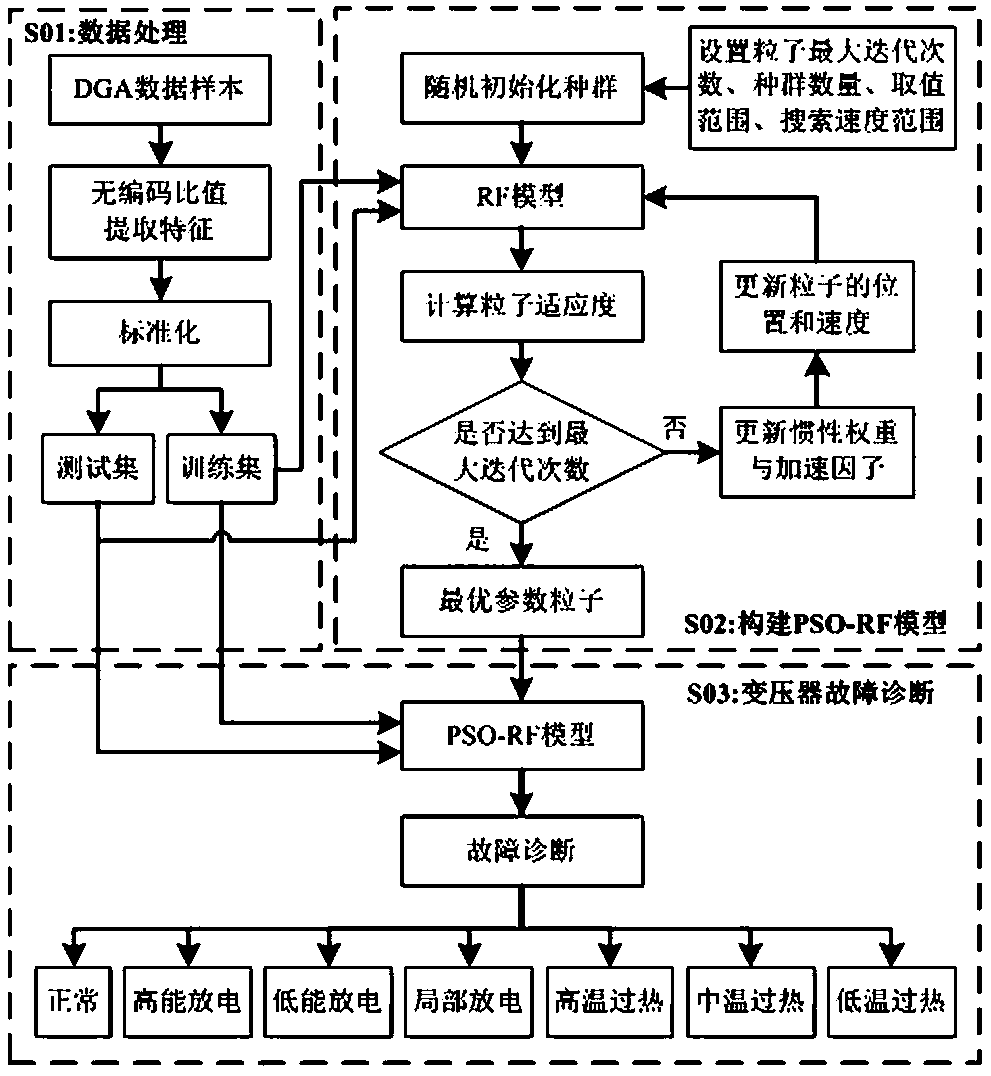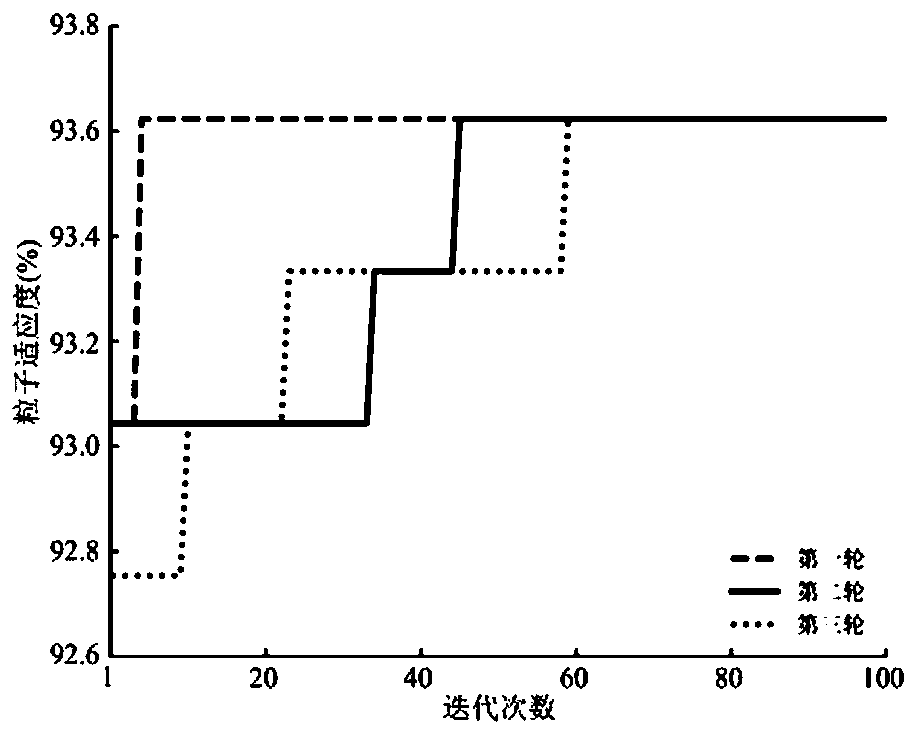Transformer fault diagnosis method for optimizing random forest model based on particle swarm algorithm
A random forest model, transformer fault technology, applied in computational models, biological models, instruments, etc., can solve the problems of absolute fault boundary distinction, long BPNN training time, and difficulty in obtaining classification effects, and achieve the effect of improving the accuracy rate.
- Summary
- Abstract
- Description
- Claims
- Application Information
AI Technical Summary
Problems solved by technology
Method used
Image
Examples
Embodiment
[0078] Collect the dissolved gas sample data of known faulty transformers, and use all the collected data samples to form a total of 1723 groups of transformer fault data sets, which are divided into 1378 groups of training set data samples and 345 groups of test set data samples according to 8:2. On this basis, the analysis is carried out to verify the performance of the particle swarm optimization algorithm to optimize the random forest model. The samples of each fault type are divided in proportion as shown in Table 1.
[0079] Table 1 Data distribution of failure samples
[0080] Fault type sample number of training samples Number of test samples normal 179 143 36 high energy discharge 452 362 90 low energy discharge 160 128 32 Partial Discharge 100 80 20 high temperature overheating 301 241 60 medium temperature overheating 408 326 82 low temperature overheating 123 98 25 total 1723 1378 345 ...
PUM
 Login to View More
Login to View More Abstract
Description
Claims
Application Information
 Login to View More
Login to View More - R&D
- Intellectual Property
- Life Sciences
- Materials
- Tech Scout
- Unparalleled Data Quality
- Higher Quality Content
- 60% Fewer Hallucinations
Browse by: Latest US Patents, China's latest patents, Technical Efficacy Thesaurus, Application Domain, Technology Topic, Popular Technical Reports.
© 2025 PatSnap. All rights reserved.Legal|Privacy policy|Modern Slavery Act Transparency Statement|Sitemap|About US| Contact US: help@patsnap.com



